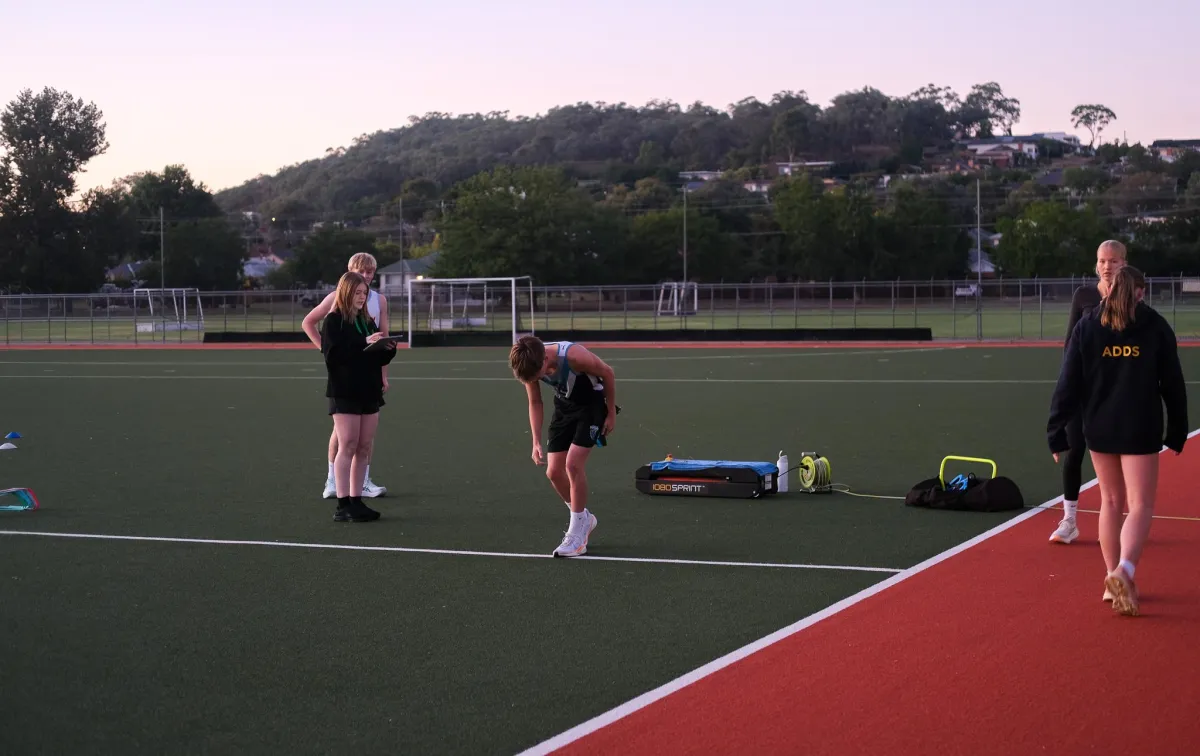More than training. It's an Edge.

Why In-Season Training Matters More Than You Think
What you'll learn in this article:
✅ Why your performance can drop if you stop training during the season
✅ The truth about pre-season vs. in-season training
✅ Simple tips to stay strong, fast, and injury-free all season long
✅ How to train smarter, not harder
Pre-Season Builds You Up, But It’s Not Enough
Pre-season training is where most athletes get stronger, faster, and build a solid fitness base. But when the season starts, many athletes back off training too much — thinking it’ll help them feel “fresh” for game day.
Here’s the truth:
If you stop training during the season, your strength, speed, and power won’t stay the same — they’ll slowly fade.
The Big Mistake: Doing Too Little
You might think less training = less fatigue. But your body doesn’t work that way.
When you stop lifting, sprinting, or doing explosive work, your body starts to lose what you built. You may feel slower, heavier, and more tired over time — not because you're doing too much, but because you're doing too little.
Why In-Season Training Is Essential
Smart training during the season helps you:
✅ Keep your muscles, joints, and tendons strong
✅ Stay explosive and quick off the mark
✅ Avoid injuries from weakness or poor movement
✅ Feel better and recover faster after games
Even just 1–2 focused sessions per week can help you stay sharp.
Your Training Should Help You Play Better
Not all workouts are good for athletes. Some fitness classes or high-intensity sessions can make you more tired, not better at your sport.
In-season training should:
Match your game and recovery schedule
Be short, specific, and purposeful
Focus on power, speed, and resilience
A Simple Weekly Structure That Works
✅ Sprint once a week – keep your top speed sharp
✅ Strength train 1–2 times – maintain muscle and joint strength
✅ Recovery days – include stretching, mobility, or light movement
Use bye weeks to reset, rebuild, and improve anything that’s been slipping.
Ask Yourself:
Am I still sprinting fast in games?
Does my body feel strong and powerful?
Is my recovery getting slower?
Am I doing enough to stay sharp?
The best athletes check in with their body and adjust training to stay on top.
Bottom Line
In-season training isn’t about going harder. It’s about staying ready.
Stay consistent. Stay strong. Finish the season better than you started it.
👉 Need help with an in-season training plan that works for your schedule?
Book a Performance Call with Our Coaches Today
STAY CONNECTED
QUICK LINKS
GYM HEADQUARTERS
© Athlete’s Edge Albury – All Rights Reserved